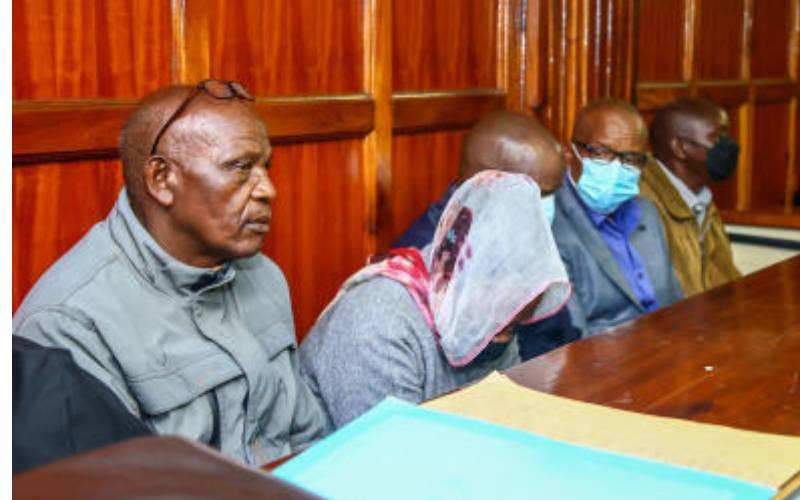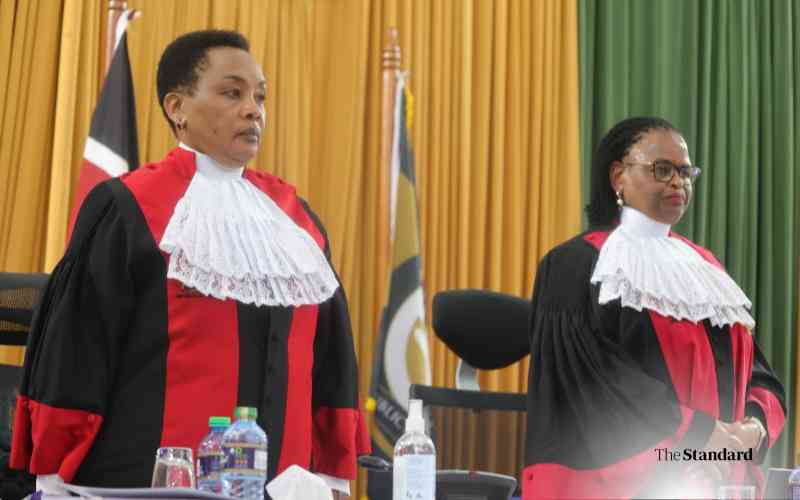Failure by a key witness to testify in the presence of the accused person has forced a case concluded in 2014 to a re-trial.
This is after a man who had been sentenced to life imprisonment for allegedly committing incest successfully appealed against the conviction and sentencing on the grounds that he did not have a chance to cross-examine the witness.
The magistrate’s court in Kabarnet had declared the victim as vulnerable following recommendations by a doctor that she was traumatised.
It is the trial court that ordered the witness to give evidence in the absence of the accused, despite expressing his wish to cross-examine the witness.
The Director of Public Prosecutions did not oppose the appeal but asked for a retrial since the first was defective. In his December 10 judgment that quashed the conviction and set aside the sentence, Justice Edward Murithi found the trial as defective and a nullity. “There has not been any indication that the witness may not be available for retrial. The error or misdirection resulting in the defective trial was occasioned by the court, of course, with application by the prosecution, but the seriousness of the defilement of child, if proved, is a compelling reason to grant the order for retrial,” the judge said.
Section 31 of the Sexual Offences Act provides that the witness be protected by giving evidence in a protection box and through an intermediary.
It further prohibits the publication of the identity of the complainant, the family or any information that may lead to the identification of the complainant or family.
Just like in the above case, a number of judges and magistrates with no witness booths in their courtrooms have been faced with challenges on how vulnerable witnesses can give evidence and be cross-examined without feeling traumatised or risking their lives.
Nicholas Simani, the communication consultant for Judicial Performance Improvement Programme (JPIP) said witness booths have been installed in Kibra, Thika, Shanzu, Mombasa, Kandara, Githunguri, Baricho and Busia law courts to assist in dealing with such cases.
Vulnerable witnesses
He said the witness boxes have traditionally been open and anyone occupying them are easily identified by the court and the court users. This is to ensure openness in the judicial processes. In order to ensure justice and to safeguard the rights and lives of the vulnerable witnesses in cases involving young witnesses, victims of sexual offences, capital crimes and terrorism, Simani said it is now global practice to embrace various means of receiving evidence.
“A cost-effective means that the Judiciary has embraced is to install witness boxes that shield the witness from sight of the accused,” he said.
Under the JPIP project, witness boxes have been installed. The witnesses’ boxes are a cost-effective means of ensuring justice is pursued by addressing the issue of absentee witnesses who would otherwise be afraid of giving their evidence in court.
The boxes comprise materials such as wooden panels and a tinted glass pane sourced and assembled in the locality of the law court.
A vulnerable witness is ushered into court before the doors are opened to the public and taken to the box under tight security. Their voice can also be distorted to protect the identity.
Stay informed. Subscribe to our newsletter
Apart from installation of the boxes, the Judiciary has also supported witnesses’ expenses to ensure they travel to court to give evidence, thereby avoiding adjournments and ensuring faster conclusion of cases. Witness protection is one of the systems used in a number of Commonwealth countries and the International Criminal Court (ICC) where people accused of crimes against humanity are tried.
In September, the Witness Protection Unit said it had received 1,123 applications since it started its operations in September 2008, out of which 487 applicants were admitted to the local programme along with 1,373 dependants.
 The Standard Group Plc is a
multi-media organization with investments in media platforms spanning newspaper
print operations, television, radio broadcasting, digital and online services. The
Standard Group is recognized as a leading multi-media house in Kenya with a key
influence in matters of national and international interest.
The Standard Group Plc is a
multi-media organization with investments in media platforms spanning newspaper
print operations, television, radio broadcasting, digital and online services. The
Standard Group is recognized as a leading multi-media house in Kenya with a key
influence in matters of national and international interest.
 The Standard Group Plc is a
multi-media organization with investments in media platforms spanning newspaper
print operations, television, radio broadcasting, digital and online services. The
Standard Group is recognized as a leading multi-media house in Kenya with a key
influence in matters of national and international interest.
The Standard Group Plc is a
multi-media organization with investments in media platforms spanning newspaper
print operations, television, radio broadcasting, digital and online services. The
Standard Group is recognized as a leading multi-media house in Kenya with a key
influence in matters of national and international interest.





